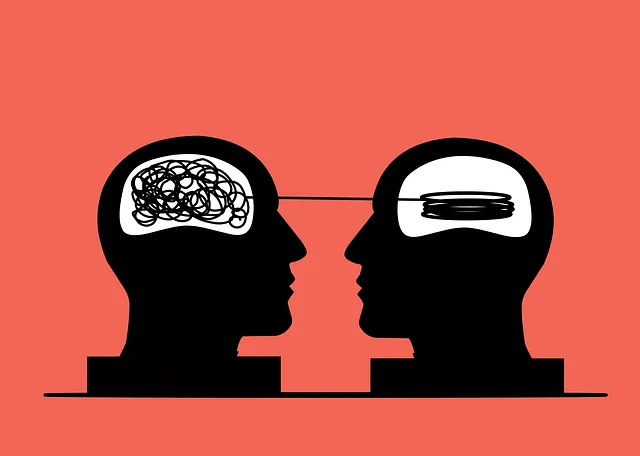Kaiser's comprehensive community outreach programs in Littleton combat mental illness stigma through public education, policy analysis, and innovative therapy services. Their multi-faceted approach normalizes conversations about mental health, offers social skills training, and promotes empathy, enabling residents to access quality care without judgment. By integrating stress management workshops and advocacy for policy reforms, Kaiser positively impacts the mental health landscape in Littleton, ensuring folks have supportive resources they need.
Mental illness stigma remains a significant barrier to treatment, but efforts to reduce it are gaining momentum. This article explores three key aspects of this ongoing battle: understanding the profound impact of mental health stigma, examining a successful case study of Kaiser’s role in reducing it within their community in Littleton, and uncovering effective strategies to sustain these efforts long-term. Discover how initiatives like these can foster a more inclusive environment for those seeking therapy.
In terms of local access, “does Kaiser have good therapists in Littleton?” searches reveal a commitment to mental health care, ensuring residents have options for high-quality treatment.
- Understanding Mental Illness Stigma and Its Impact
- Kaiser's Role in Reducing Stigma: A Case Study
- Effective Strategies for Sustaining Stigma Reduction Efforts
Understanding Mental Illness Stigma and Its Impact

Stigma surrounding mental illness can have profound effects on individuals and communities alike. It often prevents people from seeking help or understanding their conditions, leading to unnecessary suffering. The impact is widespread; those affected may experience isolation, discrimination, and even physical health issues as a result of the societal and self-perceived barriers created by stigma. This internalized shame can hinder one’s ability to function in daily life, affecting work performance, relationships, and overall well-being.
In efforts to combat this, organizations like Kaiser are making strides in providing accessible therapy services in communities such as Littleton. They offer various mental health education programs designed to promote understanding and reduce stigma. These initiatives include social skills training, which equips individuals with tools to navigate interpersonal interactions confidently. By fostering an environment of positive thinking and open dialogue, these programs aim to normalize conversations about mental health, ensuring that folks can access the support they need without fear of judgment or discrimination.
Kaiser's Role in Reducing Stigma: A Case Study

In the effort to reduce mental illness stigma, Kaiser has emerged as a notable advocate. A case study focusing on their initiatives reveals effective strategies that have positively impacted communities, especially in areas like Littleton where access to quality mental health services is paramount. By employing comprehensive approaches, Kaiser goes beyond traditional therapy and integrates public awareness campaigns and mental health policy analysis and advocacy into its programs. This multi-faceted approach includes Depression Prevention efforts tailored to local needs, ensuring that residents have the support they need to overcome stigma and seek necessary care. Through such innovative strategies, Kaiser demonstrates its commitment to fostering an environment where individuals feel comfortable discussing their mental health struggles without fear of judgment or discrimination.
The case study further highlights how Kaiser’s involvement in public awareness campaigns has been instrumental in educating the Littleton community about mental health issues. These campaigns have successfully challenged societal perceptions and fostered empathy, thereby reducing stigma associated with seeking therapy. By facilitating open conversations around mental well-being, Kaiser’s efforts ensure that individuals facing mental health challenges do not feel isolated but rather supported by their communities. This positive shift encourages more people to access services from therapists who understand the nuances of mental illness, ultimately leading to improved outcomes for those in need.
Effective Strategies for Sustaining Stigma Reduction Efforts

Stigma reduction efforts require a multifaceted approach to achieve significant and lasting change. One effective strategy involves Community Outreach Program Implementation, where organizations like Kaiser, with their presence in areas like Littleton, can directly engage communities, educate residents, and dispel myths surrounding mental illness. These programs often include Mental Health Policy Analysis and Advocacy, pushing for inclusive policies that normalize conversations around mental health.
Additionally, offering Stress Management Workshops Organization can equip individuals with tools to cope with stress, potentially preventing the onset of more severe mental health issues. By combining these initiatives, communities can foster a culture of understanding and empathy, which is crucial in sustaining stigma reduction efforts over time. This holistic approach ensures that support systems are in place, not just for those currently struggling, but also for those at risk of developing mental health conditions.
Mental illness stigma reduction is a multifaceted endeavor, with significant impacts on individual well-being and societal attitudes. As evidenced by Kaiser’s successful case study in Littleton, collaborative efforts between healthcare providers and community engagement are crucial for sustaining progress. By employing effective strategies that foster understanding and empathy, we can create an environment where individuals with mental health challenges receive the support and care they deserve. Additionally, continued research and advocacy are essential to ensure that services like those offered by Kaiser remain accessible and of high quality, ultimately helping to dispel stigma and promote healing.






